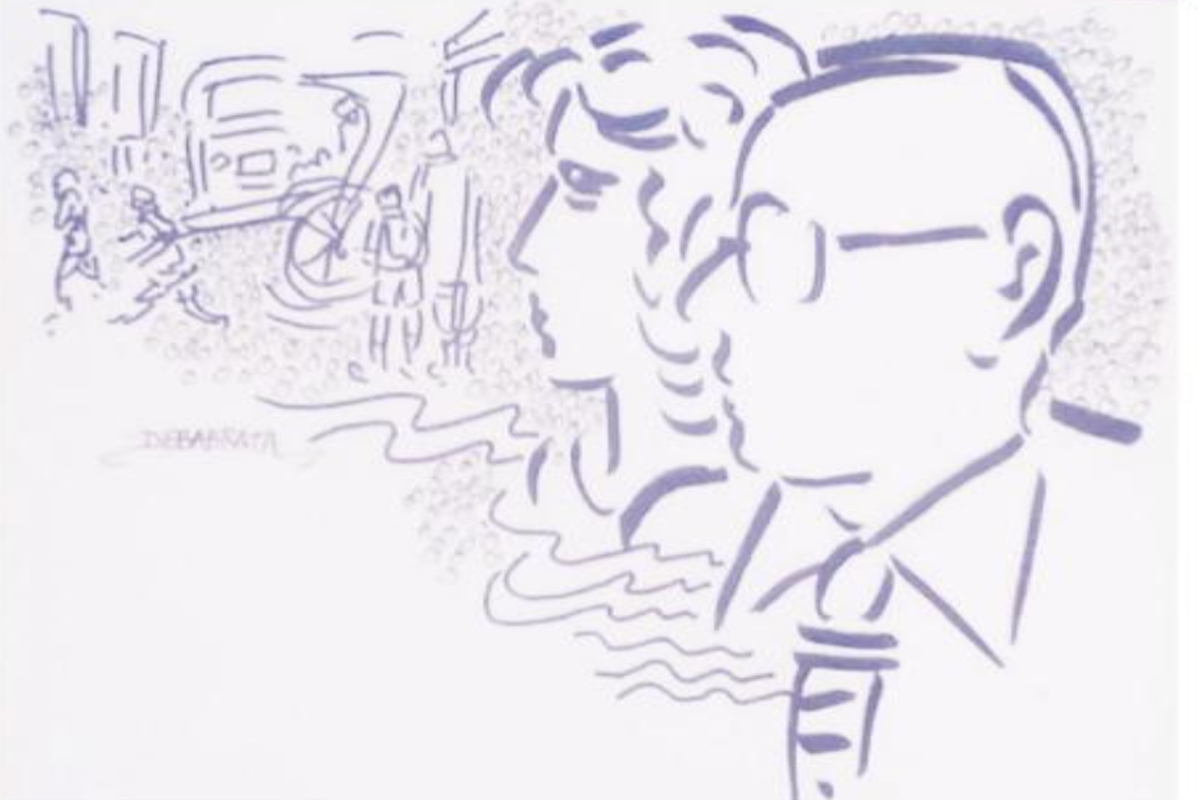I was born in a large town in central India, Nagpur, and grew up in a huge metropolis in eastern India, Kolkata. Bricks, mortar and concrete were my daily reality. I saw buildings, neat and grimy, streets, paved and muddy, markets, large and smelly, and an endless pageant of pull-carts and rickshaws, old cars and rickety buses. My daily landscape consisted of a slowly emerging sunrise behind the smoky plumes of an extensive slum and a swift, glowing sunset beyond the rusting grey-brown domes of ancient warehouses.
There was nothing green anywhere in sight. Nature, in any form, could barely intrude.
My father, who spent his early childhood in a village and remained loyal to those memories, tried hard to create a patch of lawn at the back of our home. Alas, the grass was moribund. He tried, with less of a dis- aster, to grow some flowering plants. He put them in slender vases in each room. But not mine, for he knew I did not care much for the large flowers favoured in India. He joked, “You don’t care for flowers? You could be a killer!” I favoured small non-flowering plants and large, rugged trees, few of which I encountered where I lived.
Advertisement
I read about nature in my books. There was a slight change in temperature during winter and my mother insisted I affect a cardigan when I left for school, but autumn and spring came and went quite unnoticed. These were ballyhooed in poems I read, with references to flora I could never recognize. All the literary excitement about the change of seasons seemed highly exaggerated to me. I saw few signs of their manifestation in my world.
If a season at all made a debut in my mind, it was the monsoon. There were plenty of songs about the rains, their beauty and majesty. What was most notable for me was the predictable flooding of the streets where I lived. All we needed was a couple of hours of rain, and there would be knee-deep, sometimes waist-deep, water in the street. It was filthy water, but that little bothered me or my friends. Defying all motherly concern, we simply had to have the fun of wading through swirling waters, floating paper boats and inspecting the havoc they caused to the little shops and huts.
My real encounters with nature were infrequent and unimpressively short. I remember wading through the snow in Pahalgam of Kashmir and, more memorably, running my fingers through the still waters of Dal Lake, prone in a boat. I remember too the brief and beautiful days in Darjeeling, though the town had already turned less pastoral and more touristic. But more than the hills and mountains, it was the sea that left a lasting imprint on my mind. We never had the money for a cruise, but a meditation on my loneliness.
Then my world changed. Crisscrossing the globe became my routine. Something must have broken open inside me. Three insignificant incidents come to mind.
I sat sipping bitters on Piazza San Marco in Venice when my friend said, “Look!”. I don’t recall what she was pointing at, but I clearly remember the tilting late-afternoon sun, the floating clouds, the solitary boat paddling across glorious, rippled waters and I was suddenly in a state of ineffable peace. I scratched the idea of Italy’s other charms, lingered in Venice for ten days, and every evening went to sit, pointlessly, in the Piazza.
In Egypt, strangely sleepless after a well-travelled day, I came out of my oasis haven in the Libyan desert one night and walked quietly for an hour in the sands. Not a word, not a sound. I felt I was close to heaven.
Most curious was the most pro- saic experience. I had gone for dinner to the home of a Haitian friend in the hills of Pétionville and, as I got out of the car, my eyes widened: next to the house was the most unbelievably perfect lawn, like an inviting green carpet, just the kind my father would have aspired for. I waited not a second. Disregarding my well-pressed evening suit, I lay down on the grass, looked up at the stars and said a prayer of benediction. It was the finest moment of my life.
Now I live in a quiet suburb of Washington, a green paradise. I walk at dawn through woods and shrubs, hear the rustling of leaves as deer and squirrels scurry through the tall trees, and know that, Nature, which had long eluded me, has finally made a friend of me.
Advertisement












